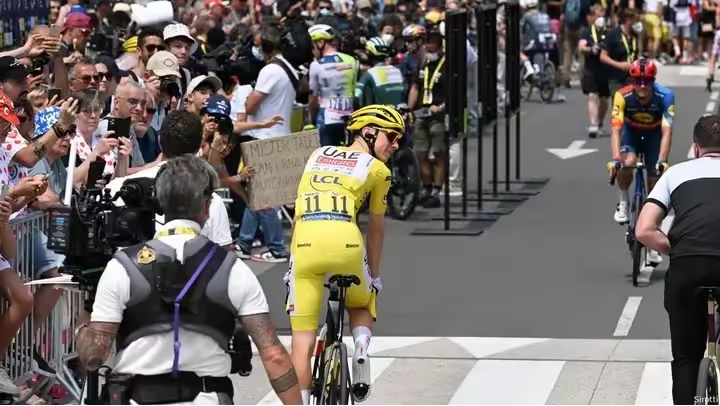The ongoing tension between former cycling champion Lance Armstrong and current superstar Tadej Pogačar is rapidly becoming a central storyline in the cycling world. Armstrong, known for his impressive achievements in the Tour de France but also for his controversial doping scandal, has been unrelenting in his critiques of Pogačar, whose remarkable performances in recent years have marked him as one of the greatest riders of his generation. The friction between these two figures speaks to a larger shift in cycling, illustrating the divide between the sport’s past and present ethos.
Armstrong’s repeated critiques of Pogačar largely stem from his suspicions about the Slovenian’s impressive performances and rapid rise. Armstrong has publicly questioned the plausibility of Pogačar’s victories, especially his back-to-back Tour de France wins in 2020 and 2021. For Armstrong, Pogačar’s feats seem to echo the dominance he once enjoyed, and perhaps as a result, he scrutinizes Pogačar’s achievements with intense skepticism. Many view this as ironic, given Armstrong’s own past with performance-enhancing drugs. Still, he has persistently voiced concerns about the possibility of doping in the sport today, despite a lack of evidence linking Pogačar to any such practices. This skepticism, some say, reflects Armstrong’s internal struggle with his own legacy and the clean, youthful image Pogačar represents.
The cycling community has responded with mixed reactions to Armstrong’s comments. Some fans and analysts argue that Armstrong, given his track record, is not in the best position to cast judgment on current riders, particularly those who, unlike him, have not faced doping accusations. On the other hand, some within the sport have suggested that Armstrong’s experience and insights can’t be entirely dismissed. After all, he understands the pressures and expectations that come with winning at the highest level, and his experiences may offer valuable perspectives on potential pitfalls for rising stars like Pogačar.
Meanwhile, Pogačar has taken a calm and composed stance, generally avoiding direct responses to Armstrong’s remarks. Known for his humility and grace under pressure, Pogačar has refrained from engaging in a public feud, focusing instead on his performance and training. His silence could be viewed as a tactic to maintain a positive image and distance himself from the controversies that marred Armstrong’s career. Supporters see Pogačar’s response, or lack thereof, as a testament to his character and a symbolic rejection of the controversies that once plagued the sport.
This generational clash has sparked broader discussions about cycling’s legacy and future. Armstrong’s critiques often reflect a mindset shaped by an era when doping scandals cast a shadow over cycling. Pogačar, on the other hand, embodies the modern wave of young riders focused on transparency, clean performance, and revitalizing the sport’s reputation. Their contrasting images highlight the progress cycling has made in terms of ethics and professionalism, a shift that fans hope will continue to flourish.
As this clash unfolds, it underscores a broader theme within sports: the struggle between preserving the past and embracing a new era. Armstrong’s attacks may stem from his own insecurities and unhealed wounds, while Pogačar’s approach exemplifies the promise of a cleaner, fairer future. For now, this feud represents a dynamic that keeps fans captivated and offers a lens through which the sport can reflect on its identity and aspirations.
